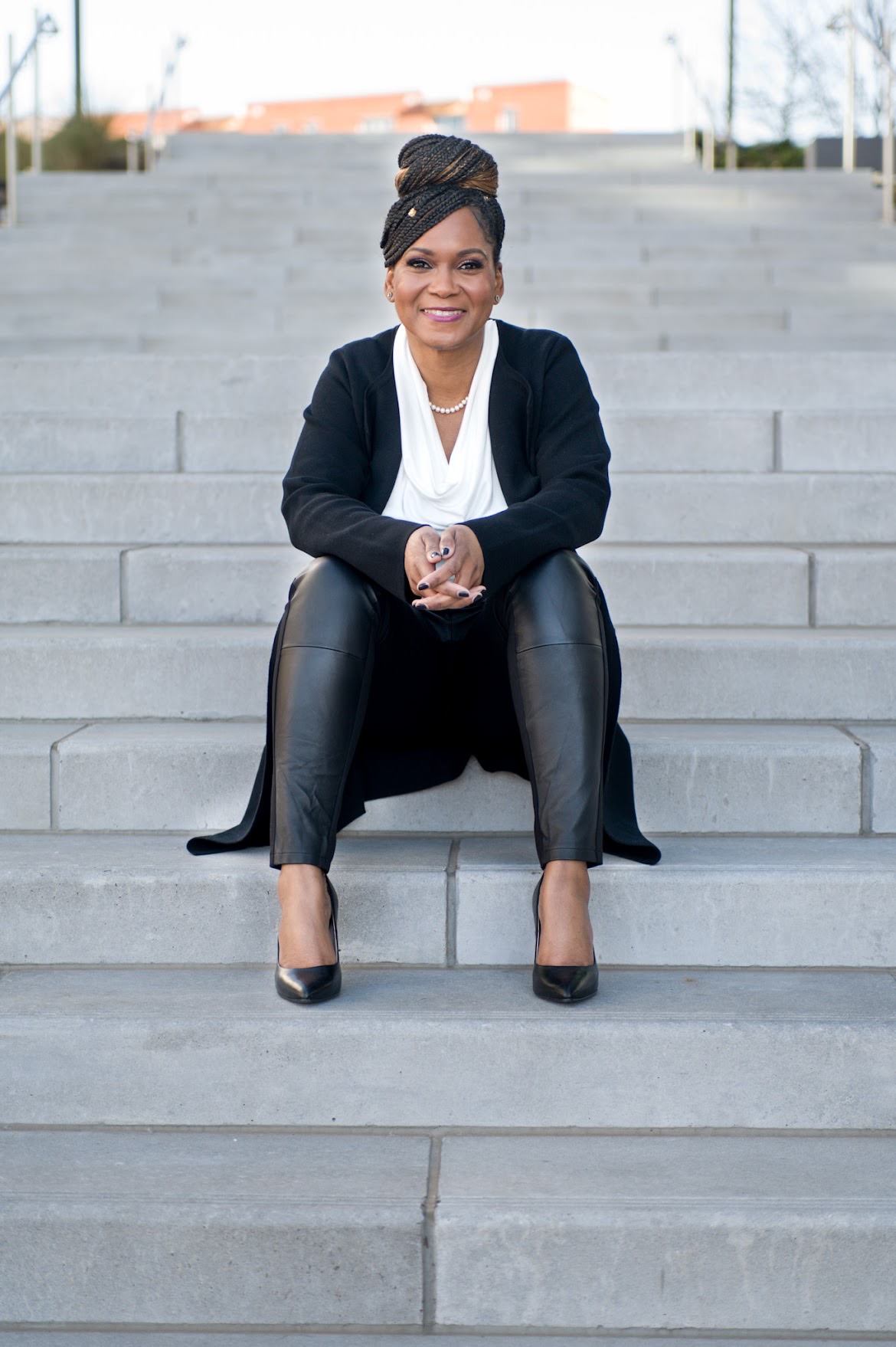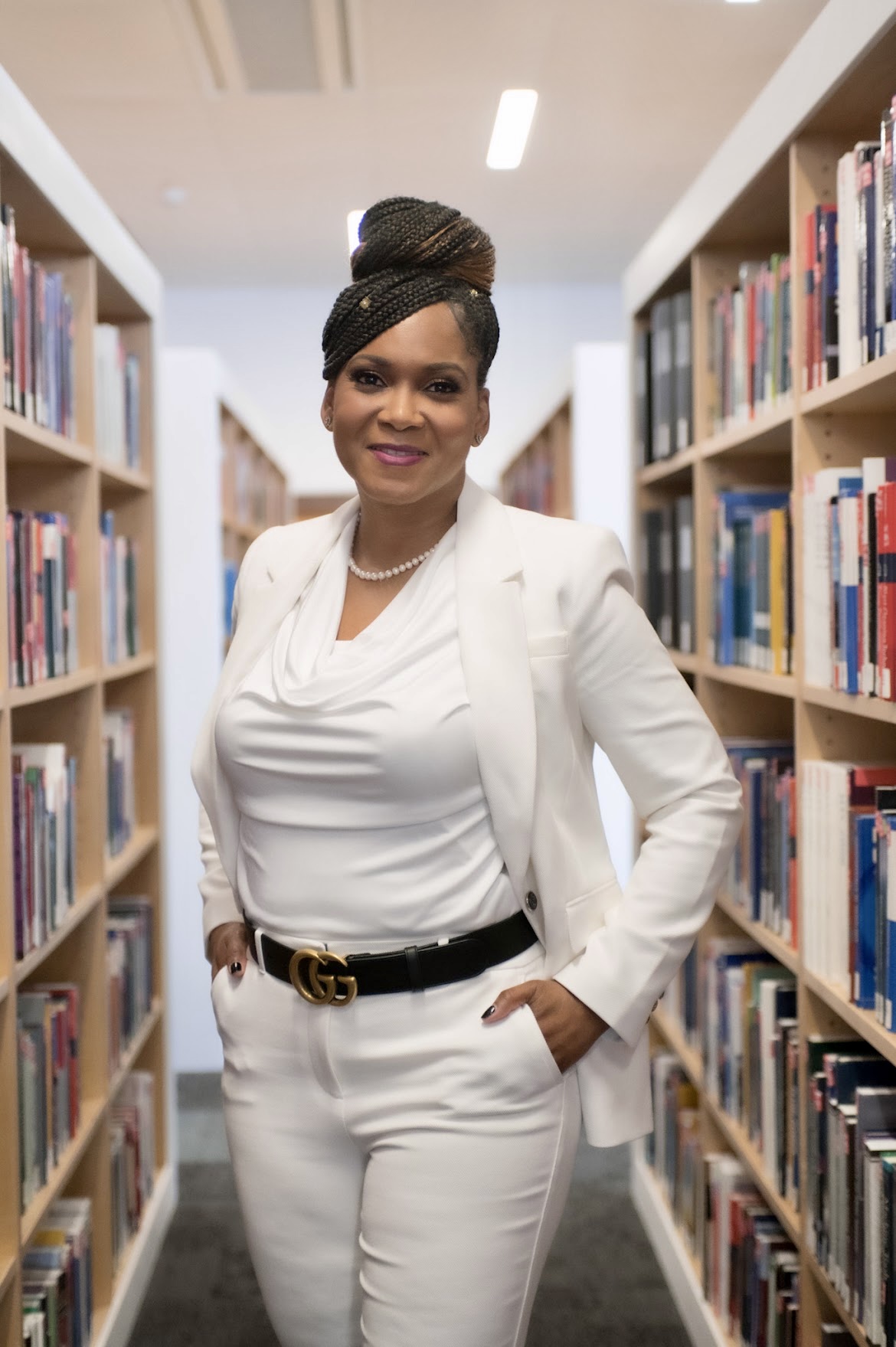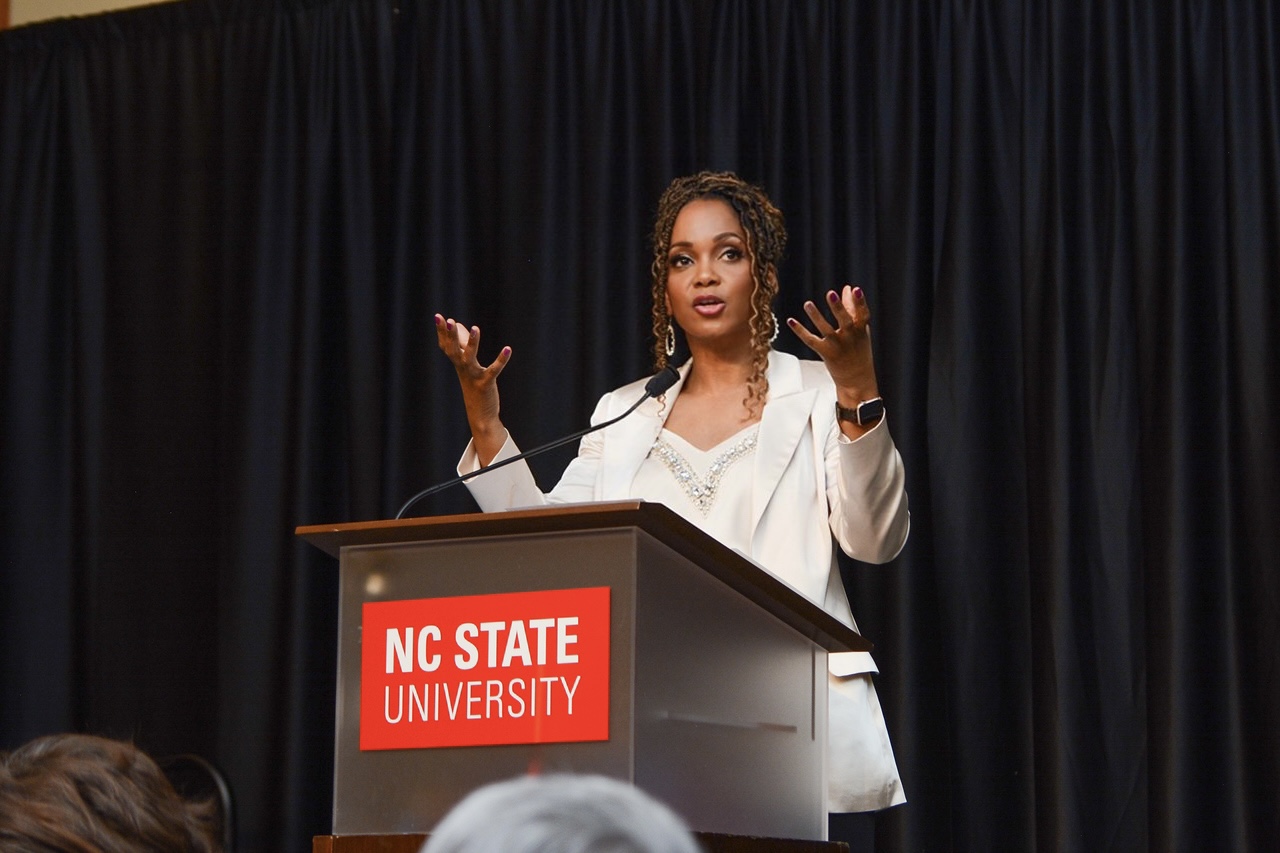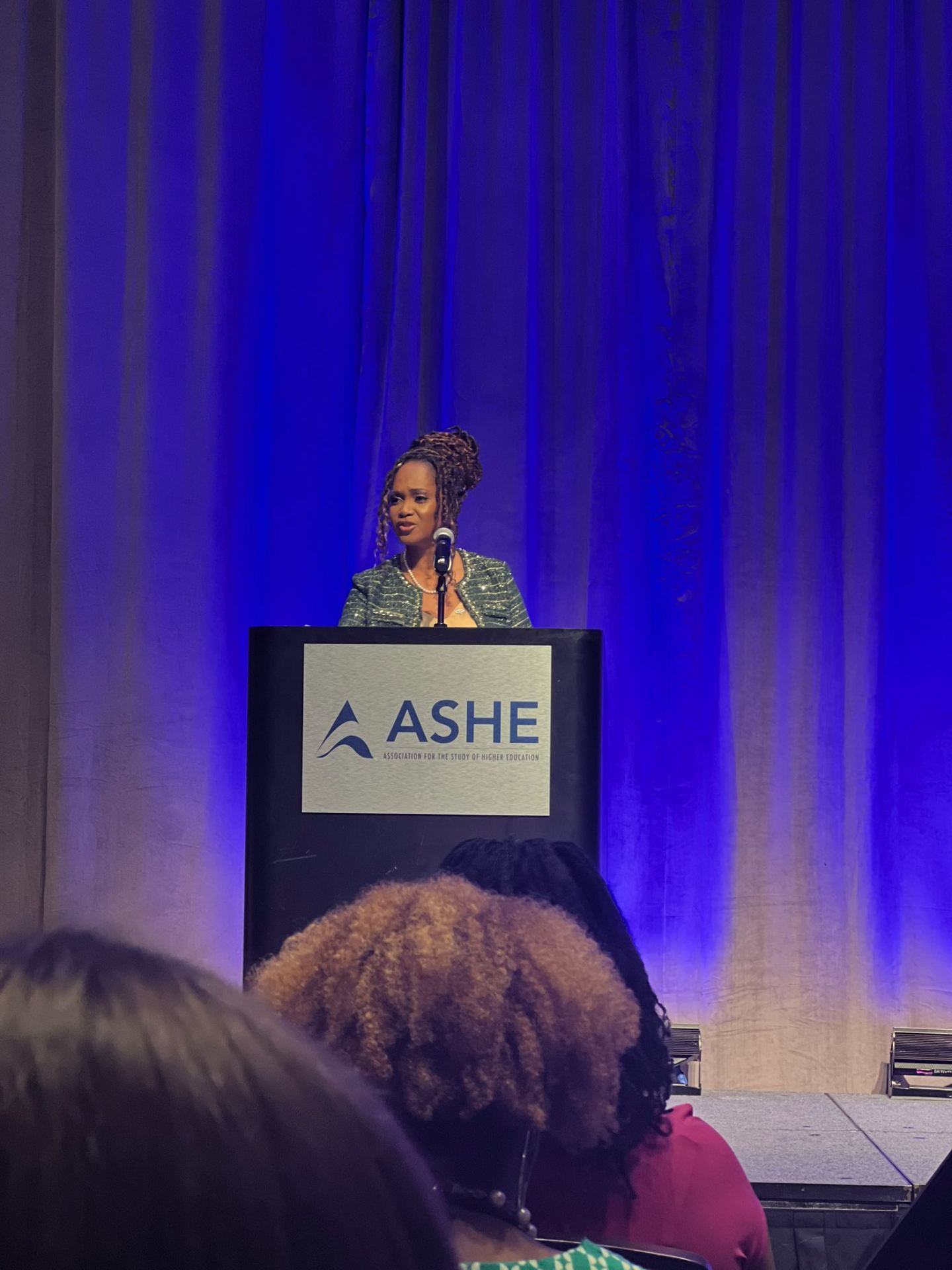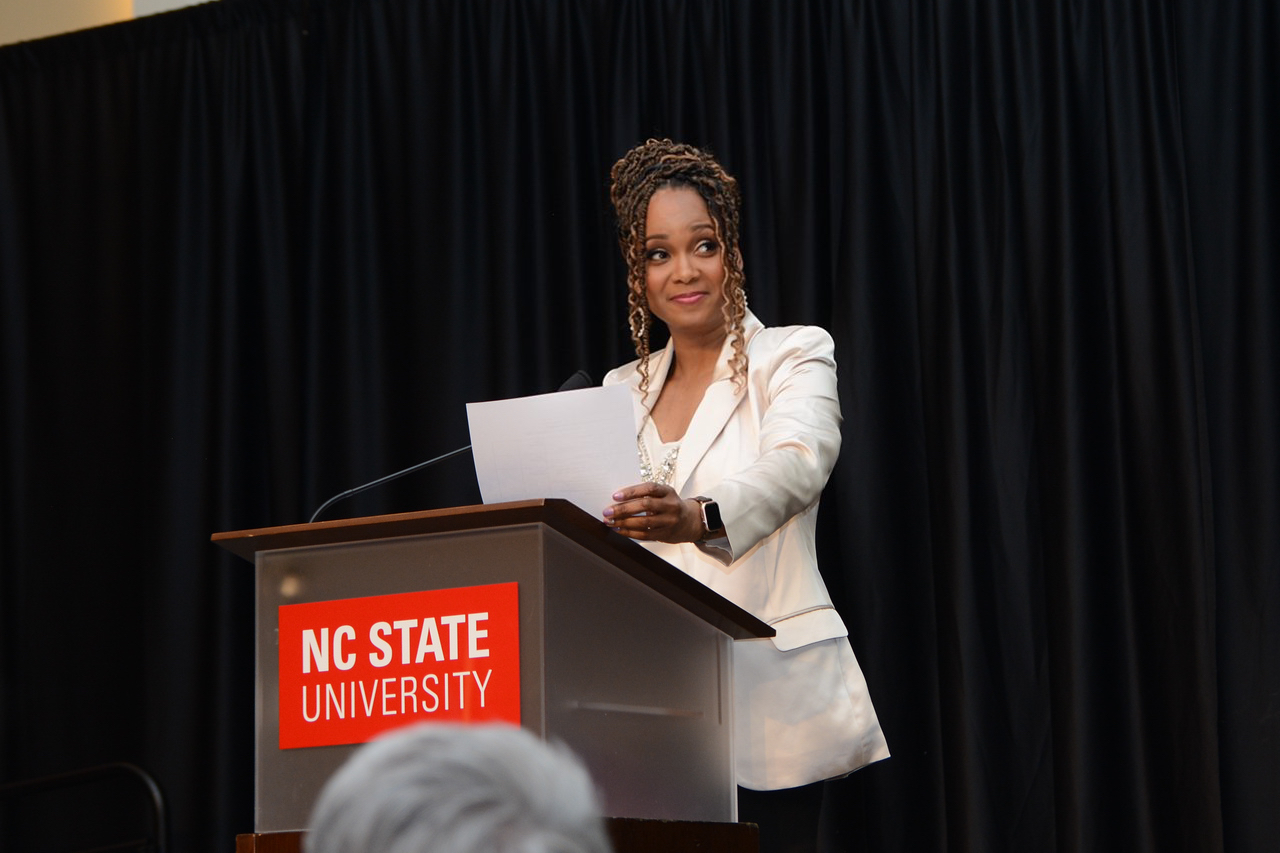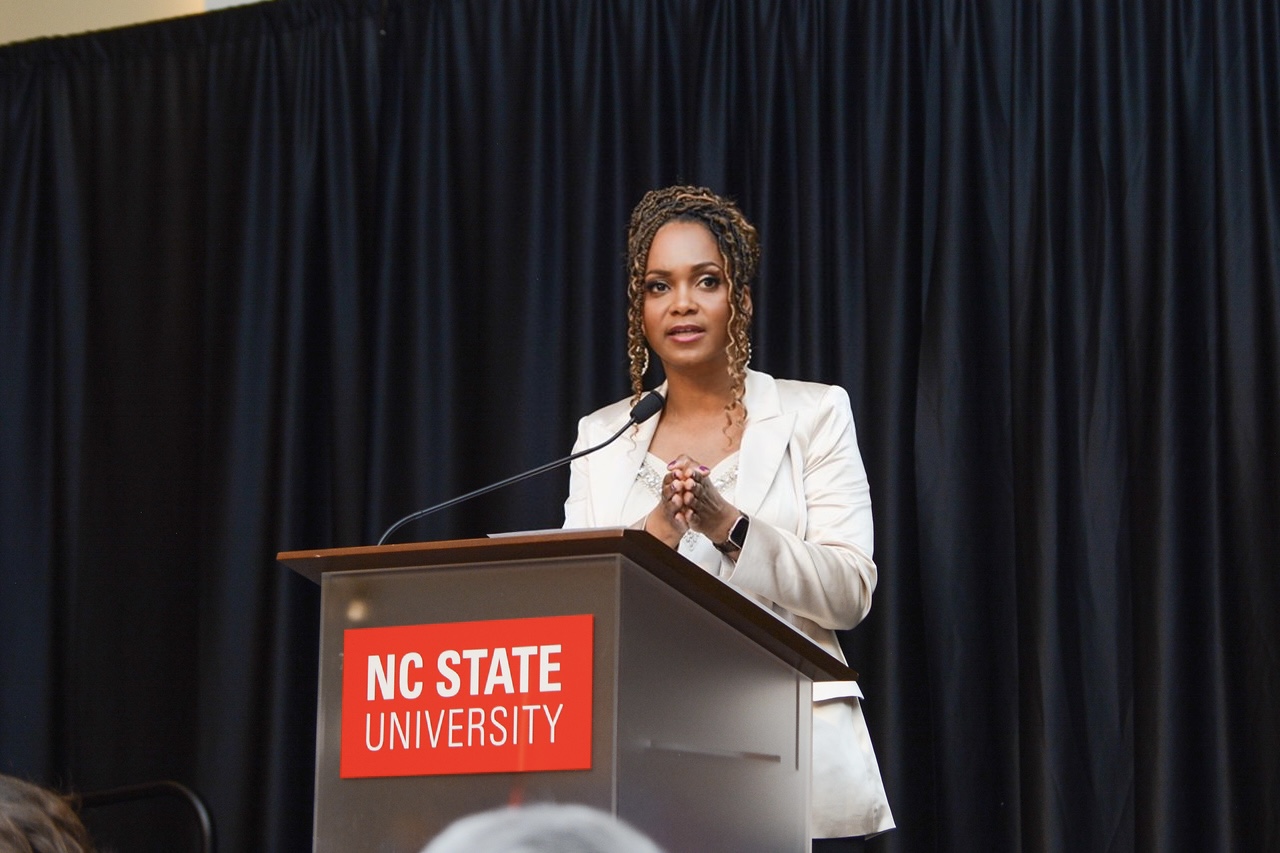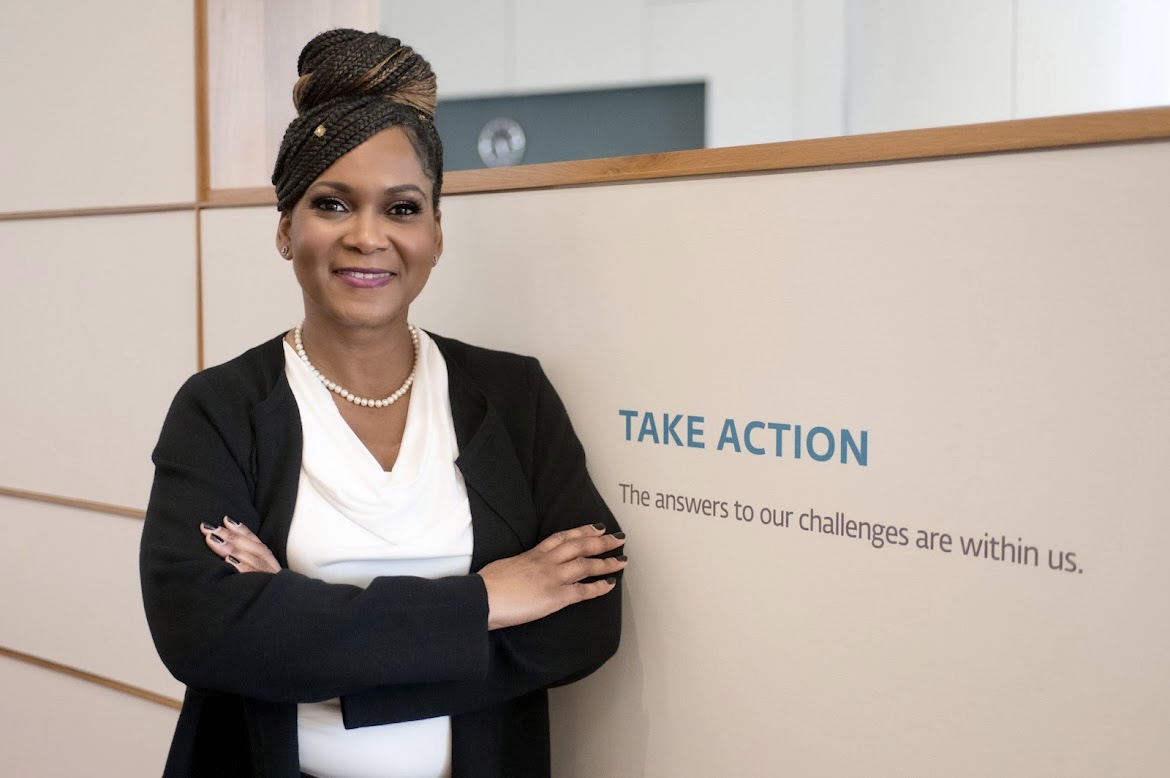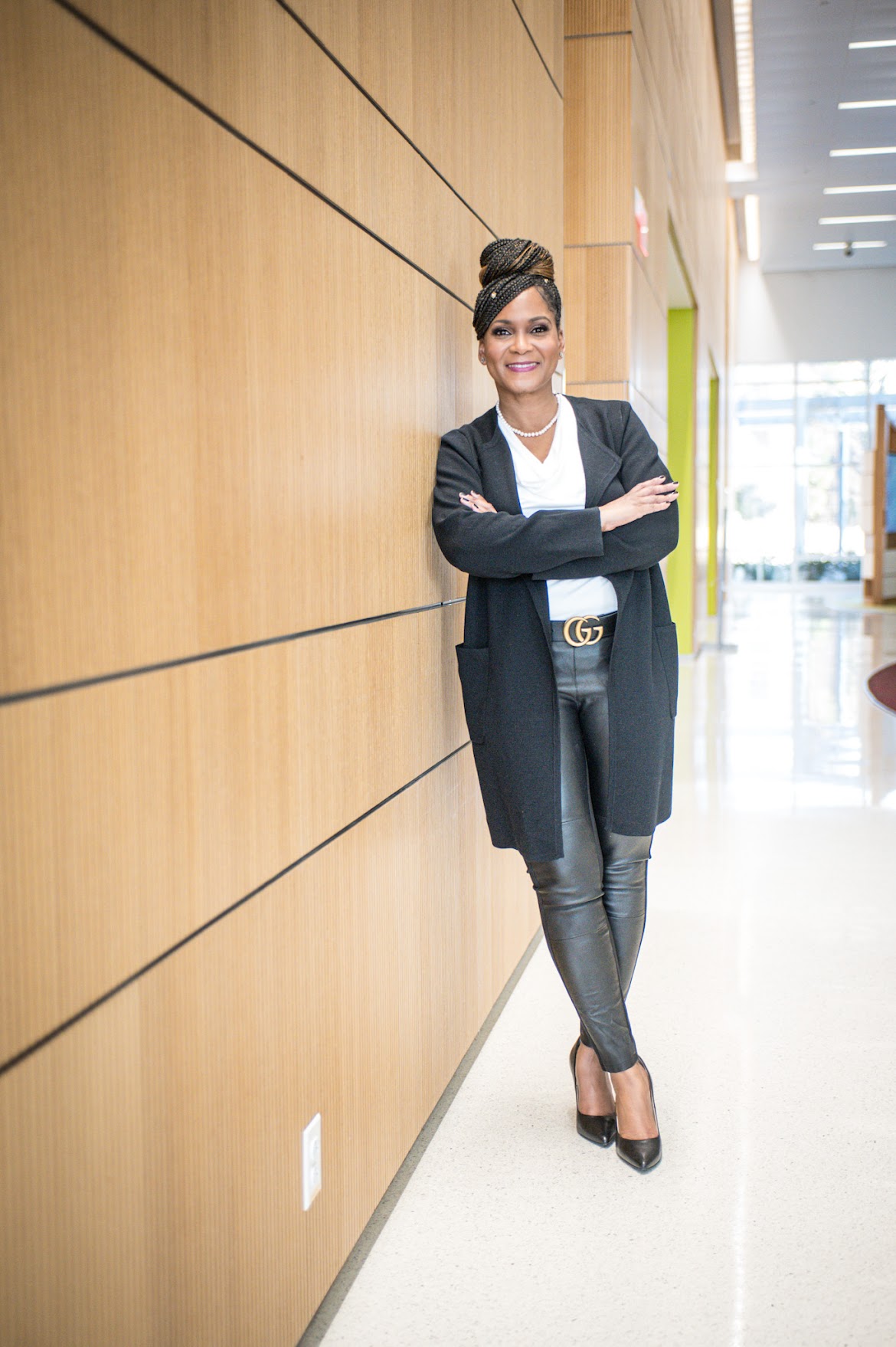By Meagan Arnold
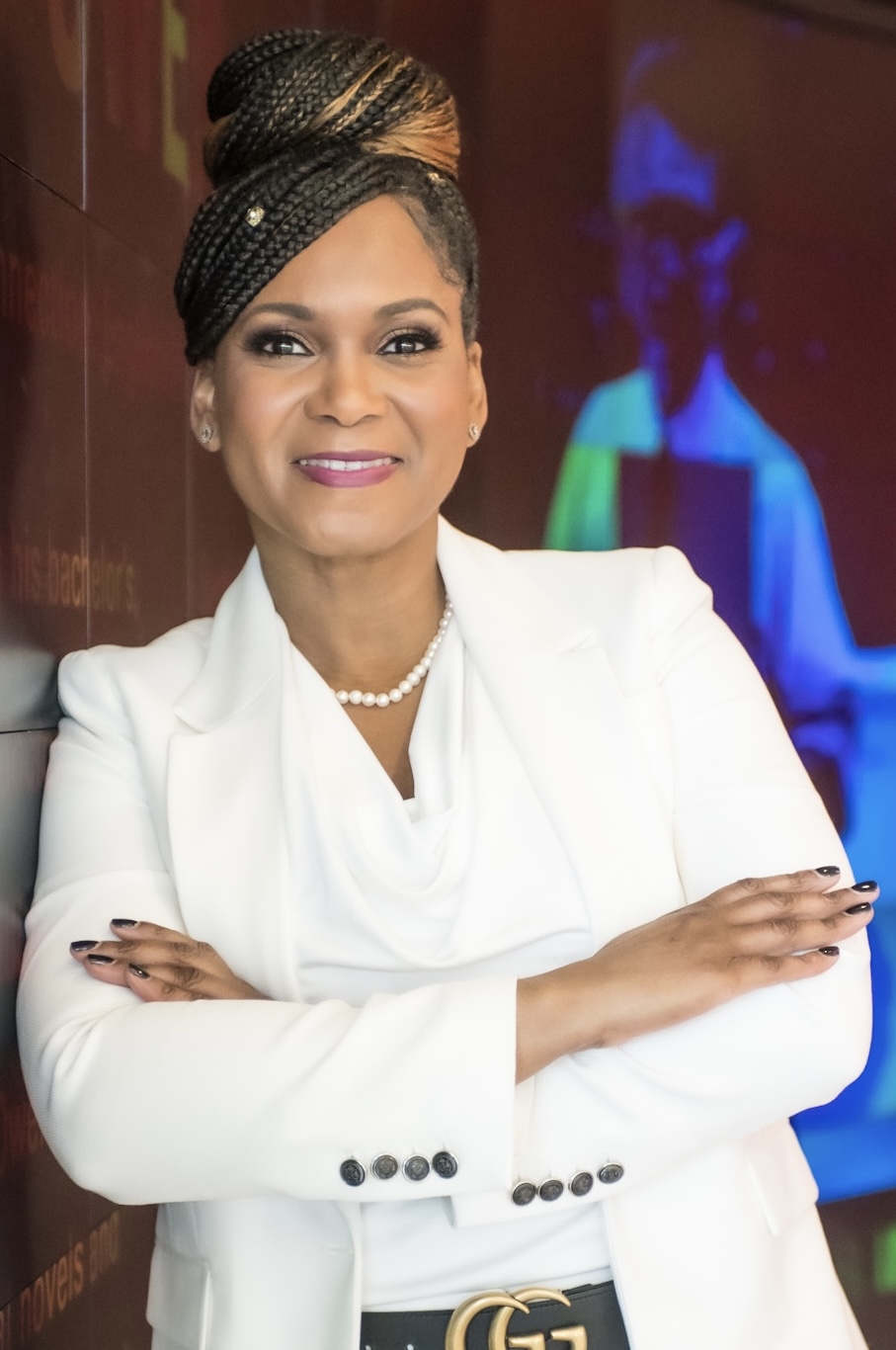
Joy Gaston Gayles: One of the learning curves for me is trying to understand the scope of work as department head. I work a lot with our human resources team to make sure folks have the support that they need to do good work. It’s an eclectic set of duties of sorts, and no day is the same.
My favorite part of my job is anytime I get to empower faculty to think about new and exciting ways to approach their work. A lot of times when people come to me with problems, I try to use those as opportunities to empower people to really think about what their “why” is, and how they can empower themselves to come up with creative solutions. During my education and career, there were always people seeing something in me, pulling it out and reflecting it back to me. Now, I’m in a position where I get to do that for others. I don’t see myself as a supervisor as much as I’d like to think of myself as a coach.
MA: Walk me through your professional journey. How did you get to your current position after Auburn?
JG: I completed my undergrad at Shaw University as a student athlete, and I played softball. During my senior year I had an abrupt switch of career paths, because my goal was to be a physical therapist. I wanted to be the first black woman athletic trainer for an NBA or NFL team—then I found out that I have a very weak stomach. So, I had to figure out something else to do.
My coach nominated me for an NCAA scholarship, and I ended up getting it. That provided the opportunity for me to go to graduate school. I chose Auburn because their higher education program had a partnership with the athletics department. You get your master’s degree in higher ed and get a practicum experience in the athletic department at the same time. That was exciting to me.
I worked in the business office marketing and academic support. So, I got to see Division I college sports up front, and that sparked my passion to continue my education after leaving Auburn. I did my doctorate at The Ohio State University in higher education administration. I thought I was going into athletic administration but ended up going the faculty route and studying college sports for most of my career.
JG: There are so many things, from equitable pay to teacher shortages. We need more people in the classroom, but how do we attract and retain people in this critically important profession? Because it’s not going to be the salary.
Everybody wants to feel valued and supported in their job. Teachers have one of the most important and toughest jobs in this country, yet that’s not reflected. How teachers are able to teach students has a lot of restrictions. That’s a challenge just in terms of being able to educate the whole person. When students are underperforming or resisting, it’s often for a reason, and it’s not because they’re not capable or they don’t want to learn. But there’s no room to make the curriculum meaningful for the diverse populations of students. Teachers want to help shape the next generation of future leaders. It’s hard work, but [teaching is] probably the most important profession in this country. Doctors save lives and teachers do too.
The world needs teachers’ gifts and talents. I was asked in a recent interview what my definition of an extraordinary educator is. An extraordinary educator is somebody who did what education did for me—they see possibilities in everybody, whether you come in and you’re super gifted and talented or if you’re not gifted and talented on paper. An extraordinary educator finds the gifts in every single child and brings those out.
MA: Do you have a favorite Auburn memory?
JG: Oh, gosh, yes! The first time we won our home game, and they rolled Toomers Corner, I thought ‘somebody’s getting in trouble! They put all this toilet paper on the trees, and they’re going to get suspended!’ When I woke up the next morning all the toilet paper was gone, and I learned that it’s actually acceptable to do.
My other favorite memory happened my second year. I got an internship in the Athletics Department event management. There were a few of us that were event managers in training. We got to walk around at the football games with walkie talkies and troubleshoot events as they happen. It was the Iron Bowl on November 22, 1997. We beat Alabama 17 to 18 and the students tore down the goal post. [I actually have] a piece of that goal post in my office. They chopped it up and made keepsakes for all of us. That was a lot of fun. Nobody got hurt, thank God.
MA: How have you approached challenges in your professional career?
JG: I’ve shifted the way I think about challenges, because are they really challenges, or opportunities to do something new and different?
Mid-career, I wasn’t sure about the direction I wanted to go, and I wasn’t in tune with what I was passionate about. I felt like my work lacked purpose, in a way. I wanted to focus and center my work in ways that really made a difference in the lives of others. It was a shift from research and writing to approaching this role from how I can make a positive impact on people’s career advancements. That’s been the challenge, always keeping that at the center and staying true to that.
MA: You’re a first-generation college student who has earned multiple degrees. What advice do you have for students starting off in similar situations?
JG: My advice for first-generation students is don’t suffer in silence, and if there’s something that you need, ask for it. There’s no question that’s out of the range. The worst thing that people can tell you is ”no” or ”not right now.” Don’t fall into the impostor-syndrome trap that can happen when you’re a first-generation student and it feels like you don’t know everything. No one knows everything. We are all here to learn and grow.
MA: Do you think your experience dealing with the stress of being a student-athlete helped you connect with educators or help you do your job better?
JG: We do get a lot of leadership skills playing sports. We learn how to win, and we learn how to lose gracefully. When you’re playing a team sport, if you’re going to win, you have got to win together. The healthiest of teams learn how to win together. All those dynamics I learned from playing college sports are ultimately leadership skills that I still use today.
Building a Brand, Cultivating a Community
A fashion emergency and a social media surge helped Kayla Jones ’18 launch her brand Women With Ballz.
Higher Ed, Higher Calling
Sydney Freeman Jr.’s love of people led him to a prestigious U.N. fellowship and a life dedicated to helping others.
Churmell Mitchell ’16 Knows It’s All About The Journey
How strong teachers and an Auburn education turned Churmell Mitchell into a national speaker, mentor, best-selling author and CEO.
Building a Brand, Cultivating a Community
A fashion emergency and a social media surge helped Kayla Jones ’18 launch her brand Women With Ballz.
Higher Ed, Higher Calling
Sydney Freeman Jr.’s love of people led him to a prestigious U.N. fellowship and a life dedicated to helping others.
Churmell Mitchell ’16 Knows It’s All About The Journey
How strong teachers and an Auburn education turned Churmell Mitchell into a national speaker, mentor, best-selling author and CEO.
